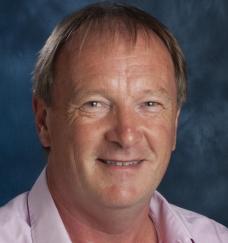Professor Richard B. Horne FRS
Richard is a physicist who has made major advances in the study of space weather – changes in the near-Earth space environment that disrupt modern technology and endanger human health.
Richard has published over 200 research papers and is distinguished for his research on wave-particle interactions in space. He showed that plasma waves accelerate charged particles to very high energies and play a major role in the formation of the radiation belts at Earth, Jupiter, and Saturn. Working with the commercial sector, Richard led two EU projects to turn this basic research into a forecasting system that is now used by the European Space Agency, satellite operators and insurance underwriters to help maintain the safe and reliable operation of satellites.
Richard was awarded the Gold Medal from the Royal Astronomical Society in 2022, the International Kristian Birkeland Medal from the Norwegian Academy of Sciences in 2020, the Appleton Prize from the International Union of Radio Science (URSI) in 2020, and Lloyds Science of Risk Prize in 2014. He was also awarded Sc.D. from the University of Cambridge in 2020 for distinguished research.
Richard was elected Fellow of the Royal Society in 2021. He is also Fellow of the American Geophysical Union, Fellow of the International Union of Radio Science (URSI), and Fellow and former Vice President of the Royal Astronomical Society. He is an Visitng Professor at the University of Sheffield.
Richard currently leads an international project on forecasting satellite risk and is Chair of the Space Environment Impacts Expert Group that advises the Government on space weather.

